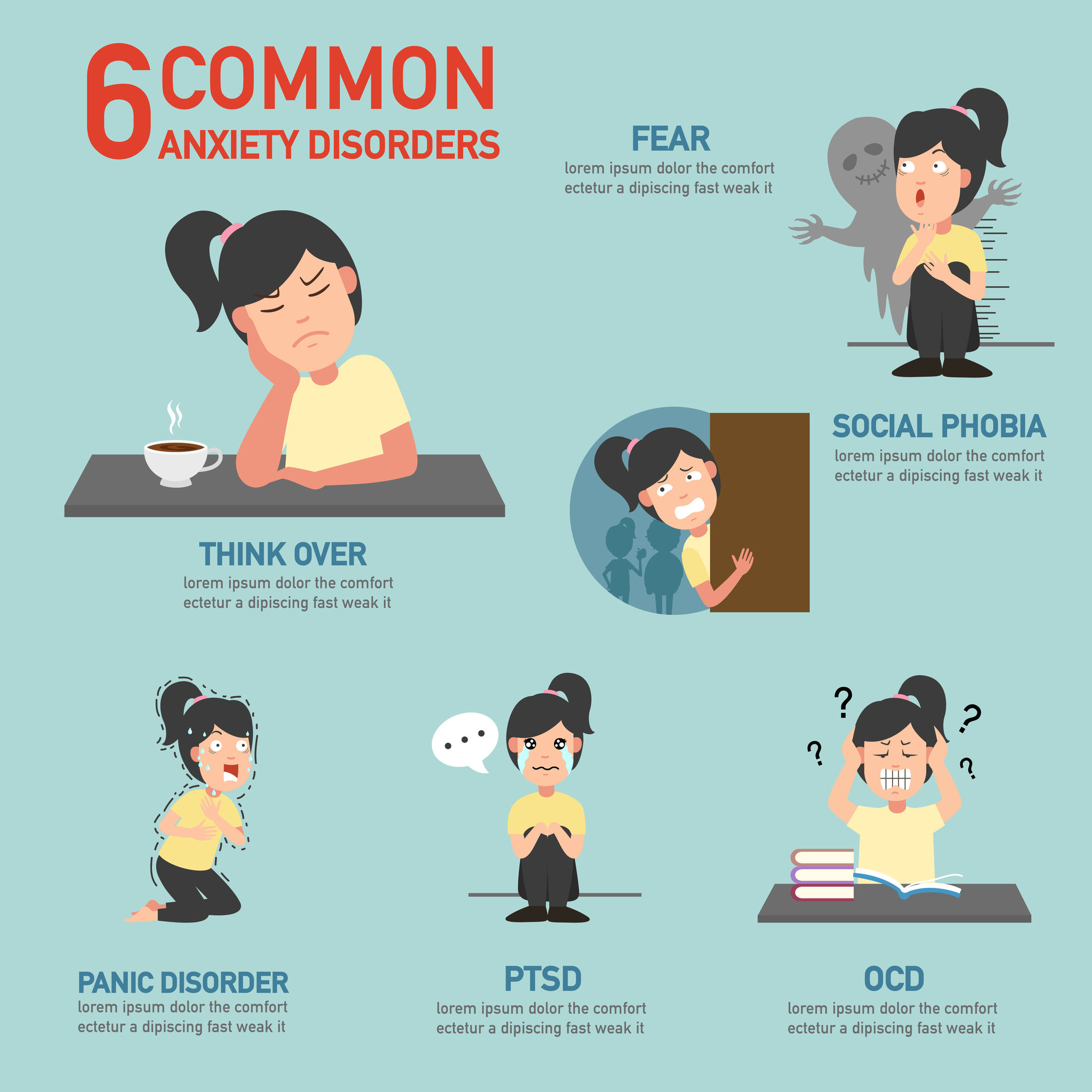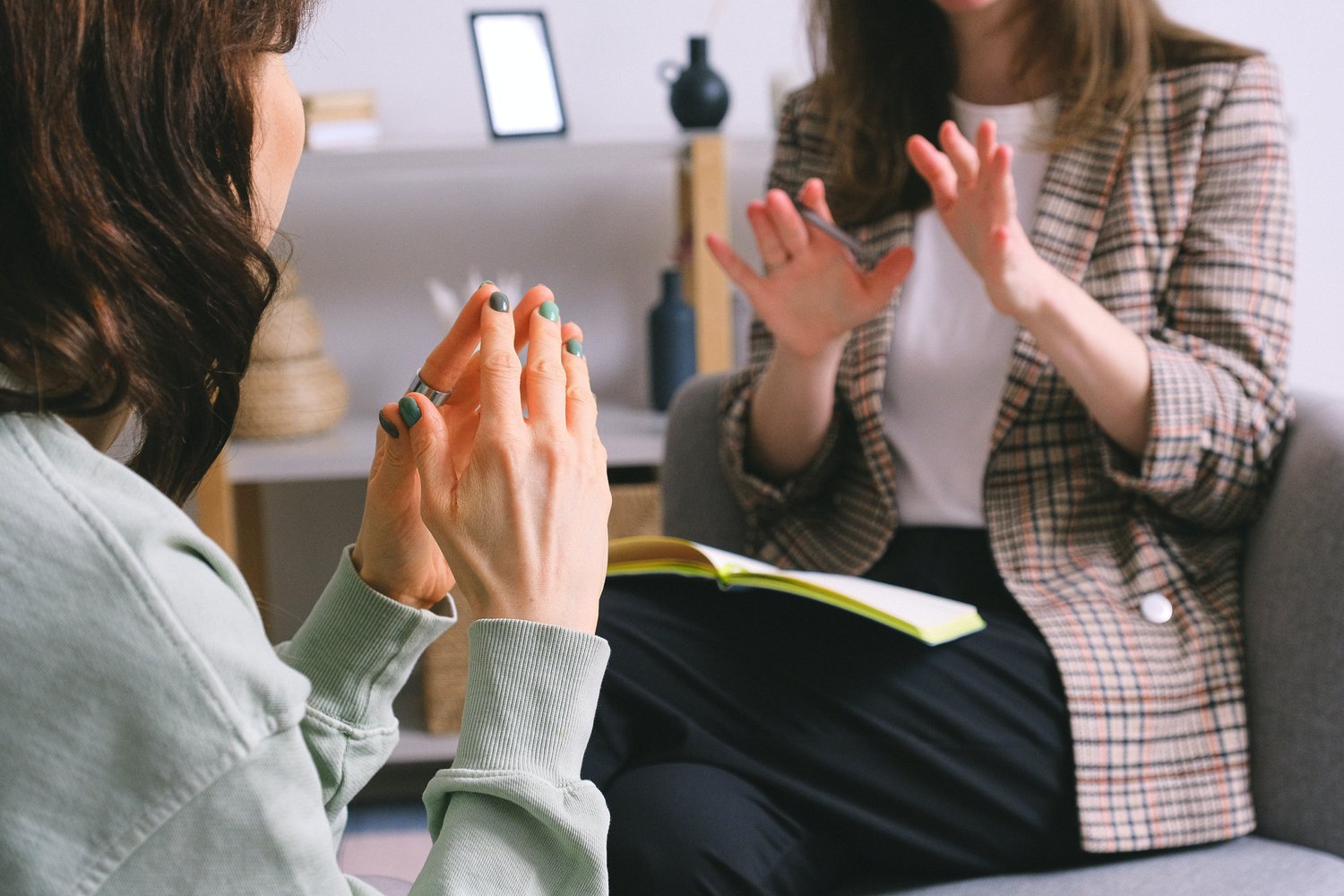Online support accessible today with a licensed therapist for anxiety
Online support accessible today with a licensed therapist for anxiety
Blog Article
Checking Out Different Approaches in Therapy for Anxiety Problem for Long-term Adjustment
When dealing with anxiousness problems, it's vital to discover a range of counseling strategies. Each technique uses unique understandings and devices to assist you handle your symptoms efficiently. You might find that incorporating methods can generate the most effective results. Comprehending the subtleties of these strategies is essential to fostering long-term adjustment. Suppose the appropriate mix could launch a brand-new level of emotional well-being for you?
Understanding Anxiousness Problems: A Quick Overview
Anxiety problems, which impact countless individuals worldwide, can greatly impact every day life. You could experience overwhelming feelings of fear or worry that seem irrepressible. These sensations can result in physical signs like a racing heart, sweating, or even wooziness. Common kinds of stress and anxiety problems consist of generalized anxiety condition, panic disorder, and social anxiousness condition. Each has unique indications, however they all share a tendency to interrupt your routine and relationships.Understanding the origin causes of your stress and anxiety is crucial. It might come from genes, brain chemistry, or life experiences. Acknowledging your triggers can assist you handle your responses better. It is essential to remember that you're not the only one in this struggle. Lots of people encounter comparable obstacles, and looking for help is a strong step towards sensation better. By discovering stress and anxiety disorders, you're currently on the path to understanding and handling your problem better.
Cognitive-Behavioral Therapy: Challenging Adverse Thought Patterns
In Cognitive-Behavioral Treatment, you'll begin by determining the adverse idea triggers that add to your stress and anxiety. You'll work on changing them with more positive options as soon as you acknowledge these ideas. With each other, you'll develop efficient coping strategies to aid manage your anxiousness in everyday situations.
Recognizing Negative Thought Triggers

Acknowledging the specific triggers behind your adverse thoughts can be important in taking care of anxiousness when you encounter minutes of distress. Beginning by taking note of circumstances that provoke sensations of concern or worry. Is it a crowded area, an upcoming deadline, or a conversation with certain individuals? Jot down these instances in a journal. This will certainly help you determine patterns in your reasoning. Notification physical sensations that accompany your unfavorable ideas, like a racing heart or tightness in your chest. By determining these triggers, you gain insight into what's sustaining your anxiety. Recognizing these links is the first action in testing those thoughts and ultimately restoring control over your psychological feedbacks.
Changing Thoughts With Positives
Testing adverse idea patterns is an essential step in transforming your attitude and reducing stress and anxiety. You may commonly discover on your own trapped in cycles of insecurity or devastating thinking. Rather than letting these ideas determine your feelings, practice replacing them with realistic choices or positive affirmations. As an example, when you assume, "I can't handle this," move it to, "I can handle challenges one action at once." This basic change can greatly impact your psychological state. Routinely recognizing and countering these negative ideas helps produce a healthier inner dialogue. Bear in mind, it takes some time and effort, however continually practicing this method can result in enduring change, encouraging you to deal with anxiousness with restored confidence and durability.
Structure Coping Techniques Together
Replacing negative thoughts is just the start of managing anxiety successfully. To create lasting adjustment, you require to develop coping strategies that encourage you. Cognitive-Behavioral Therapy (CBT) helps you identify and test those purposeless thought patterns. Together, you and your therapist can explore how these thoughts impact your feelings and behaviors.Start by creating sensible techniques, like journaling or mindfulness exercises, that permit you to challenge anxiousness head-on. When you encounter your anxieties progressively, you'll learn to react in a different way.

Mindfulness and Acceptance-Based Approaches: Cultivating Present-Moment Awareness
As you browse the intricacies of anxiousness, including mindfulness and acceptance-based methods can considerably boost your capability to cultivate present-moment understanding. By focusing on the here and currently, you'll discover that you can observe your thoughts and sensations without judgment (Counseling services for anxiety). This technique helps you recognize your anxiousness without feeling overwhelmed by it.Engaging in mindfulness workouts, such as deep breathing, body scans, or assisted meditations, enables you to ground on your own in your current experience. Acceptance-based approaches urge you to welcome your emotions instead of deal with against them. When you accept your feelings, they shed their power over you.Incorporating these methods right into your everyday regimen can transform how you reply to stress and anxiety. You'll develop strength and find out to navigate stressful situations with better simplicity. Inevitably, growing present-moment recognition lays the foundation for lasting modification, empowering you to lead an extra fulfilling life
Exposure Treatment: Challenging Fears Gradually
Exposure treatment assists you challenge your concerns in a progressive method, making it less overwhelming. You'll learn methods to face anxiety-provoking circumstances detailed, while likewise developing coping techniques to manage your responses. This approach empowers you to take control and lower anxiousness over time.
Progressive Exposure Methods

When facing anxiousness, progressively challenging your worries can be a powerful way to regain control. This method, called gradual exposure, involves slowly revealing yourself to the scenarios or items that activate your anxiousness. Begin with much less intimidating circumstances and progressively function your method as much as even more tough ones. If you're scared of public talking, you might begin by speaking in front of a mirror, after that progress to sharing thoughts with a pal, and at some point resolve a little group. Each step assists desensitize you to the fear, constructing your self-confidence in time. Bear in mind, it's crucial to speed yourself and commemorate little victories as you relocate via this procedure, strengthening your capacity to manage anxiousness properly.
Building Coping Techniques
Structure reliable coping methods is crucial for handling anxiety, especially as you challenge your fears gradually - Counseling services for anxiety. One powerful technique is direct exposure therapy, where you start by encountering your concerns in a regulated manner. Begin with less frightening scenarios and slowly function your way as much as even more challenging situations. This steady exposure helps desensitize you to stress and anxiety triggers, making them less overwhelming.Incorporate leisure techniques, such as deep breathing discover this or mindfulness, to relax your mind during direct exposure. Track your development, commemorating tiny victories along the road to boost your self-confidence. Remember, it's fine to take your time; the goal isn't excellence yet steady enhancement. By developing these techniques, you'll empower yourself to navigate anxiousness and welcome life a lot more fully
Psychodynamic Therapy: Uncovering Source of Stress And Anxiety
Psychodynamic therapy explores the unconscious mind, disclosing the source of your anxiousness. By analyzing your ideas, sensations, and past experiences, this technique assists you discover underlying problems and unresolved problems that might add to your present stress and anxiety. You'll deal with a therapist to investigate childhood years experiences, relationships, and psychological patterns that form your feedbacks today.As you gain understanding into these much deeper layers of your mind, you'll begin to acknowledge how previous events affect your existing habits. This understanding can lead to catharsis, permitting you to refine emotions you could have suppressed.Through the therapeutic partnership, you can additionally identify defense mechanisms that might have created with time, using a clearer path to alter. Eventually, psychodynamic therapy equips you with the tools to resolve your anxiety at its core, promoting long lasting improvement in your psychological wellness.
Integrative and Holistic Techniques: Incorporating Strategies for Greater Efficiency
Incorporating various healing strategies can enhance your trip towards managing anxiousness extra efficiently. By incorporating elements from cognitive-behavioral treatment, mindfulness techniques, and all natural methods, you can develop an individualized strategy that addresses your unique demands. You could make use of cognitive-behavioral methods to challenge adverse idea patterns while including mindfulness workouts to ground on your own in the existing moment.Additionally, checking out holistic practices such as yoga exercise or reflection can advertise leisure and minimize stress and anxiety signs. This mix permits you to develop better self-awareness and resilience.Experimenting with these diverse methods can help you discover what reverberates most with you. Keep in mind, it has to do with discovering a harmony that works, rather than sticking to a single technique. This integrative strategy not only offers immediate relief however also promotes long-term skills for managing stress and anxiety, encouraging you to recover control over your life.
The Duty of Assistance Systems: Building Strength Through Link
While it might seem that handling stress and anxiety is a solitary journey, having a strong support system can play an essential role in your resilience. Surrounding yourself with compassionate close friends, family, or assistance teams creates a risk-free area where you can freely share your experiences and sensations. You remind yourself that you're not alone in this struggle.These connections supply support and can give functional coping methods that have actually worked for others when you link with others. It's likewise a possibility to obtain viewpoint; close friends can help you see circumstances in a different way, lowering feelings of isolation.Moreover, emotional assistance fosters a feeling of belonging, which can significantly minimize anxiety symptoms. By leaning on your assistance system, you can build durability and tackle obstacles much more efficiently. Remember, reaching out for assistance suggests toughness, and it can make all the difference in your trip towards taking care of stress and anxiety.
Regularly Asked Inquiries
What Are the Common Signs And Symptoms of Anxiousness Disorders?
You may experience restlessness, fatigue, trouble concentrating, irritability, muscular my latest blog post tissue tension, and sleep disruptions. Physical signs can include quick heartbeat, sweating, and shivering. Identifying these signs early can help you seek proper support and therapy.
The Length Of Time Does Therapy Commonly Last for Stress And Anxiety Conditions?
Treatment for anxiousness conditions usually lasts anywhere from a couple of weeks to several months. It truly depends upon your specific needs, progress, and the methods your therapist makes use of to aid you manage your anxiousness successfully.
Can Medication Be Used Together With Therapy for Anxiousness?
Yes, medicine can most definitely be made use of along with treatment for anxiousness. Combining both approaches typically enhances treatment performance, assisting you handle symptoms while exploring underlying concerns through counseling (Counseling services for anxiety). Always consult your health care service provider for individualized suggestions
Are There Self-Help Approaches for Handling Anxiousness?
Yes, there are several self-help strategies for taking care of anxiousness. You can exercise mindfulness, participate in routine exercise, keep a balanced diet regimen, develop a regular, and utilize deep breathing techniques to help in reducing anxiousness symptoms efficiently.
Just how Do I Know if I Required Professional Help for Stress And Anxiety?

Report this page